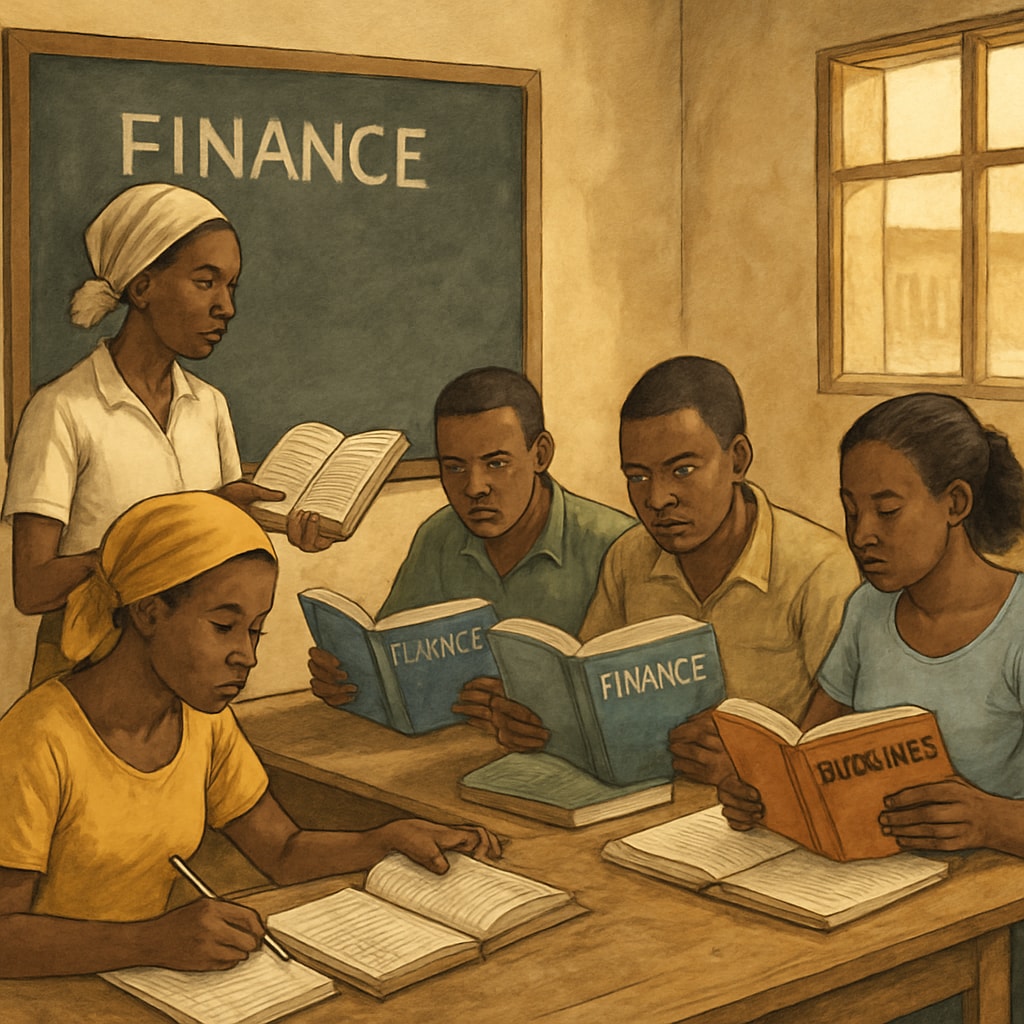For finance students in Mali, building a successful career can often feel like navigating a desert with no clear direction. The challenges they face—including limited access to quality education, a lack of local job opportunities, and restricted exposure to global financial systems—make career planning particularly daunting. However, there are viable solutions to overcome these obstacles, such as pursuing study abroad options, engaging in self-learning, and exploring innovative career paths. These strategies can act as stepping stones for students aspiring to thrive in a competitive and globalized financial market.
Understanding the Challenges in Mali’s Financial Sector
The financial sector in Mali, like in many developing countries, suffers from several systemic challenges. The local economy is heavily reliant on agriculture and mining, leaving little room for a robust financial services industry. As a result, finance graduates often struggle to find relevant job opportunities. Furthermore, financial education in Mali is generally underfunded, with limited access to advanced tools, experienced faculty, and global perspectives. These gaps hinder students from acquiring the skills and knowledge needed to compete on a global scale.
For example, students often lack exposure to key areas such as investment banking, fintech, and international trade. In addition, internship opportunities in Mali are scarce, which limits students’ practical experience. Without these critical components, finance graduates face significant barriers to entering competitive markets.

Exploring Study Abroad Opportunities
One of the most effective ways for finance students in Mali to overcome local limitations is by pursuing study abroad programs. International education offers access to world-class curricula, state-of-the-art facilities, and networking opportunities with industry professionals. Countries like France, Canada, and the United States are popular destinations due to their strong academic programs and historical ties with Mali.
To make study abroad a reality, students can explore scholarships and grants offered by international organizations. For instance, the Chevening Scholarship (UK) and the Fulbright Program (USA) are excellent options for students seeking financial aid. Additionally, online platforms like StudyPortals provide comprehensive information on global educational opportunities.
However, studying abroad is not without its challenges. High costs, visa restrictions, and cultural adjustments can be significant barriers. Therefore, students need to plan meticulously and seek mentorship from alumni or educational consultants to navigate these obstacles successfully.
The Role of Self-Learning and Online Resources
For those unable to afford study abroad programs, self-learning offers a viable alternative. The internet has democratized access to high-quality educational resources, enabling students to gain skills independently. For example, platforms like Coursera and edX offer free or affordable courses on topics such as financial modeling, investment strategies, and fintech innovations. Students can also pursue certifications like the CFA (Chartered Financial Analyst) to enhance their qualifications.
In addition to formal courses, students can access financial news, industry reports, and case studies to stay updated on global market trends. By dedicating time to self-learning, they can build a competitive skill set and improve their employability, even within the constraints of their local environment.

Innovative Career Paths in Finance
Traditional finance roles such as banking or corporate finance may be limited in Mali, but alternative career paths are emerging. For example, the rise of fintech (financial technology) offers exciting opportunities for entrepreneurial-minded students. By leveraging technology, students can develop innovative solutions for local challenges, such as mobile payment systems or microfinance platforms.
Another promising avenue is remote work. With the global shift towards digital workplaces, finance graduates in Mali can now apply for remote roles with international companies. Websites like Remote.co and Upwork help connect skilled professionals with employers across the globe.
Additionally, students can consider roles in non-profit organizations or international development, where financial expertise is highly valued. These sectors often address poverty reduction and economic development, aligning with the needs of Mali’s economy while offering meaningful career opportunities.
Conclusion: A Roadmap to Success
While the challenges for finance students in Mali are significant, they are not insurmountable. By embracing opportunities such as study abroad, self-learning, and innovative career paths, these students can break through the barriers that limit their potential. It requires determination, strategic planning, and a willingness to explore unconventional solutions. Ultimately, with the right mindset and resources, Mali’s finance graduates can turn their ambitions into reality, contributing to both their personal success and the development of their nation’s economy.
Readability guidance: This article uses short paragraphs, clear transitions, and actionable advice to ensure readability. The content is structured with headings for easy navigation and includes external resources for further exploration.


